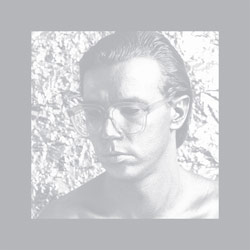
 Harald Grosskopf
Harald GrosskopfSynthesist/Re-Synthesist
Rvng Intl.
With the last decade having seen an increased awareness of the pioneers of krautrock, the focus has now zeroed in on the universe of kosmiche psych, specifically artists like Ash Ra Tempel, Klaus Schulze and Cluster, who found inspiration in the power of primitive analog electronics. Harald Grosskopf’s 1980 album, Synthesist, while drawing directly from his peers’ new age directions (Grosskopf drummed for both Ash Ra and Schulze), was itself built upon uncharted frontiers, preferring tidy pop and bedroom horizons. At times, it’s like Another Green World in miniature, while at others, it’s apparent Grosskopf was hampered by having only a Minimoog and medieval sequencer. But such limitations lend to the charm and hidden wonders of this record. The bonus Re-Synthesist CD sees the album replicated by contemporary nu-agers like Oneohtrix Point Never, Arp, and Blondes and shows that Grosskopf’s forgotten gem has some devoted fanatics. KJE

 Father’s Children
Father’s ChildrenWho’s Gonna Save the World
Numero Group
The Numero Group traffics in things so obscure that the average person couldn’t even think about requesting them. Yet this time they’ve gone above and beyond for Who’s Gonna Save the World by the DC-based funk band Father’s Children. A lost album that preceded the group’s 1979 flop, Who’s Gonna is a glimpse into a country that was in the midst of the Watergate scandal while the promises of the ’60s were slowly unraveling. There are tough, world-weary songs like “Dirt and Grime” and “Everyone’s Got a Problem,” on which a band member declares, “You talkin’ about Watergate, I’m so broke I can’t pay attention.” But it’s not just grim reporting, as the record is shot through with the residual optimism of the ’60s. Think of it as the more hopeful spiritual brother to There’s a Riot Going On, a social call to arms that unfortunately no one heard at the time. DSH
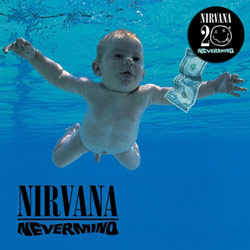
 Nirvana
NirvanaNevermind 20th Anniversary Edition
Geffen
Nobody’s entirely sure how to define Generation X, but a solid age requirement is that you had to be 12 years old or older when Kurt Cobain killed himself. Then you’re probably a Gen-Xer, and Nirvana meant something more to you than mere filler for VH1 top 10 lists. I just missed the cut, becoming a part of Generation Y/Me/Livejournal or whatever and, as a result, it was hard to get into Nirvana until I had some distance from the zeitgeist I was too young to understand, but which was too pervasive to ignore. Listening to Nevermind 20 years removed from the hysteria, it’s much easier to appreciate it for what it is: a brilliant nexus of punk and pop connected by jagged, unhinged, Pixies-spawned rage that sounds only incidentally like the million grunge bands it helped create. The hipsters will always prefer In Utero, the hardcore kids Bleach, and the bedroom aficionados Unplugged in NY. But broad appeal is not always a bad thing, especially when it’s for an album that, despite its massive influence, sounds like nothing else out there. DH
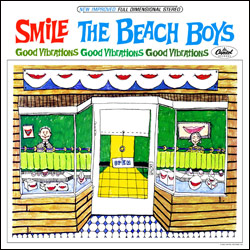
 The Beach Boys
The Beach BoysThe Smile Sessions
Capitol/EMI
There’s probably no record more legendary for its absence than The Beach Boys’ Smile. It’s a record nerd’s rite of passage to discover Pet Sounds and then run head first into the mythology of Smile. While some scraps snuck out here and there—most notably on The Beach Boys’ boxset—it seemed a safe bet that it would never be heard in its entirety. Brian Wilson revisited the album in 2004, but it wasn’t until the release of this completist’s dream 44 years after the album was recorded that most of our questions have finally been answered. Who knows what final shape the record would have ultimately taken had the sessions been completed, but was it worth the wait? Tap dancing Zeus in a toga, yes! Depending on if you like your music in casual or OCD mode, there’s a variety of different formats to experience the album, but at its core Smile is an expansively gorgeous and ambitious album that stands up to its mythology. DSH
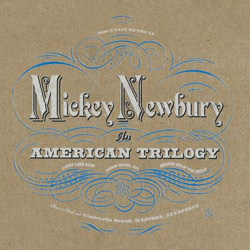
 Mickey Newbury
Mickey NewburyAn American Trilogy
Drag City
The moment you put Looks Like Rain on your turntable and Mickey Newbury croons that utterly emblematic opening phrase, “Write the song, the song, write the song about her,” you’re going to wonder how you could’ve missed this outlaw songwriter before. Dig just a tiny bit and you’ll discover how wildly influential and deeply revered Newbury’s work was and is. This magnificent set, remastered from tapes that were legendarily thought destroyed in a fire, restores to our ears some of the starkest, most tenderly crafted, utterly unique music that ever came out of Nashville. There’s a great story to be told about all the elbow grease that went into reissuing the three albums and bonus disk that comprise An American Triology, but the bottom line is that all that love and respect was absolutely worth the effort. These albums are treasures, and they demand to be heard. MS
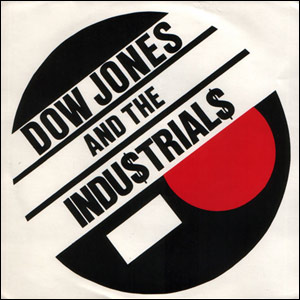
 Dow Jones and the Industrials
Dow Jones and the IndustrialsDow Jones and the Industrials ep
Family Vineyard
In addition to containing some top-shelf, all-American punk/wave, Family Vineyard's reissue of this 1980 slab from Dow Jones and the Industrials is a worthy testament to the beauty of the seven-inch single as an object. A nearly exact replica of the original on Hardly Music, the reissue captures every detail from the neoplasticism cover art to the handwritten insert to the joke running times of each song (the B-side, “Indeterminism,” is said to be an impossible 17:52). Musically, the EP is a reminder that the alienated and the terminally bored of the late-70s heartland didn’t have to look to New York and LA for musical outlets. “Can’t Stand the Midwest” remains as classic a blast of rebellion in the face of provincialism as any ever recorded. Nice remastering on a heavy slab of wax, and it won’t cost you $100 either. NK

 Fugazi
FugaziLive Series
Dischord
Making good on a promise that dates back a few years, Dischord began the ambitious undertaking earlier this month of making the more than 800 Fugazi shows they have in their vaults available for download. These live recordings were done by the band’s own sound engineers and represent about 80% of the band’s live performances before going on indefinite hiatus in 2003. Currently, the Fugazi Live Series features 130 concerts (30 of which were available previously on CD), like this one I went to at the Roseland Ballroom in 1993. Each one can be purchased for $5 (or if you can justify using the sliding scale option, for as low as $1), while an all-access pass good for all recordings available now and in the future can be had for $500. Either way, this project is mind-blowing, not only in terms of its scope, but on a micro level as well. Live, Fugazi was a seismic force of fury and precision, and as this series shows, there has never been an act able to fill their shoes. SS

 Cheater Slicks
Cheater SlicksOur Food Is Chaos
Almost Ready
Our Food Is Chaos collects what may be the earliest Cheater Slicks recordings, with short-lived bassist Allen Paulino (of the Real Kids) joining the band’s core trio of guitarists Tom and David Shannon and drummer Dana Hatch. While a handful of these tracks appeared on the band’s Skidmarks compilation (released by Crypt in 1998), this full repackaging of these nine songs is nothing short of revelatory to fans of the Slicks’ unique brand of noisy, down-and-out rock. The presence of Paulino’s bass puts an entirely new twist on the band’s sound, providing a more traditional bottom end while not totally grounding the kinetic interplay of the Shannon brothers’ guitars. Featuring a good handful of covers (such as the raucous “Please Give Me Something”) and some early Slicks originals (like longtime favorite “Murder”), Our Food Is Chaos gives listeners an enlightening glimpse at one of underground rock’s most criminally under-appreciated acts. RW
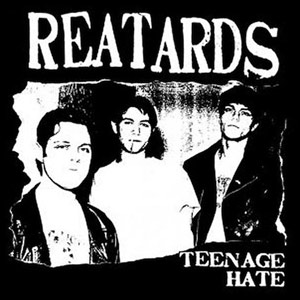
 Reatards
ReatardsTeenage Hate Deluxe Reissue
Goner
In the wake of Jay Reatard’s untimely death last year, a number of the garage-punk rocker’s friends and supporters have taken up the task of ensuring that his music will not be forgotten. Foremost among these is Goner, which served as both an early inspiration to and continual supporter of Jay’s musical endeavors. This reissue of Teenage Hate, the Reatards’ debut LP, makes the blistering glory of Jay’s bombastic teenaged punk readily available to the masses. Also included are two Reatards cassette releases, The Reatards and Fuck Elvis, Here’s the Reatards, that predate Teenage Hate. Goner’s tastefully remastered and repackaged reissue of this seminal album not only celebrate’s Jay’s early work, but it provides insight into his development as an artist. RW
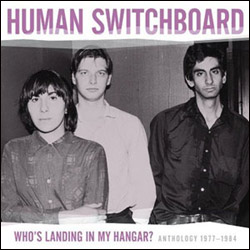
 Human Switchboard
Human SwitchboardWho’s Landing in My Hangar? Anthology 1977–1984
Bar/None
Issued 30 years ago and out of print for nearly as long, the one and only studio album by Human Switchboard, Who’s Landing in My Hangar?, has nonetheless loomed large in the minds of all who managed to get their hands on a copy. (Of course, in the internet age, virtual copies have been easier to come by.) The sound the Northeastern band created was informed by the Velvet Underground and its Cleveland offspring (Pere Ubu, et al.), but knocked around romantic notions about art and life unlike those of its predecessors in its frenetic whir as well. This year, the album finally got the remastering and expanded edition it has long deserved (though sadly no vinyl edition), with the album’s original 10 songs fleshed out by an additional 11 tracks. While cuts like the title track and “I Can Walk Alone” prove that the group should be held in the same regards as the Modern Lovers and Television as punkish modernists, bonus material like “A Lot of Things,” a demo the band recorded in CBGB’s for Polygram, reveal there was even more unfilled potential than once believed. With a download code providing another 19 cuts, this is a fittingly thorough epitaph, even if it is a couple decades late. SS
